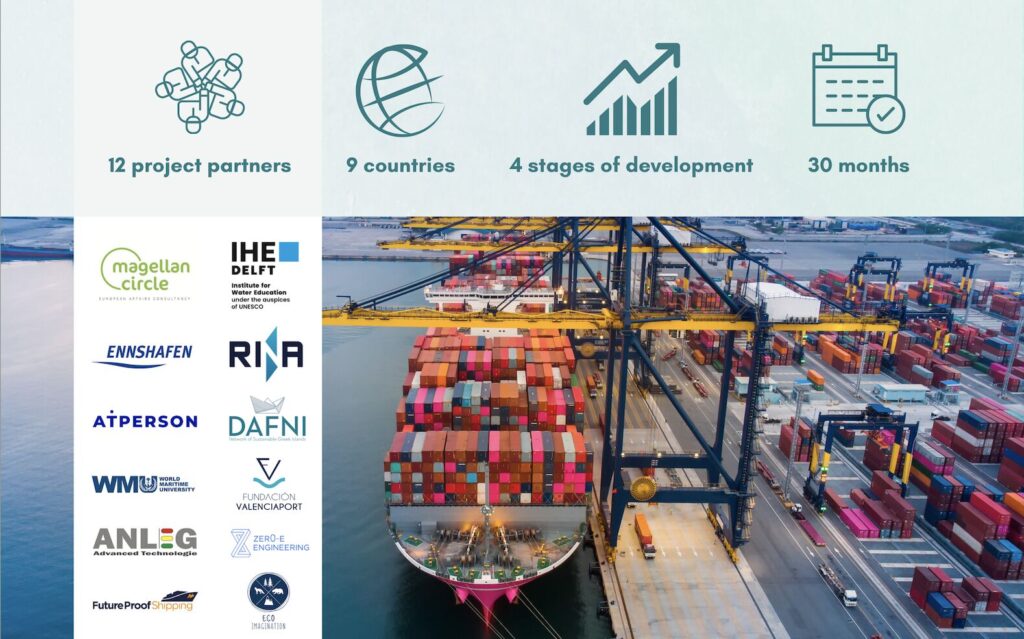On November 10th, 2022, World Maritime University hosted our first SEANERGY Project workshop in collaboration with ENGIMMONIA Project on EU #ports and #alternativefuels.
In conclusion, many challenges lie ahead:
- No clear single transitional and/or long-term standard yet (LNG, ammonia, methanol, hydrogen etc.)
- Need for sufficient capacity of renewable energy for green fuel production
- Massive long-term investment needs
- Ensuring long-term physical port space, capacities and planning horizons for green fuels and fuel infrastructure
- Grid capacity and competing prioritization for shore power and electrification
- Regulations need to be technology-neutral and promote the desired outcome of emissions reduction rather than specific technologies.
- All actors, shipping lines/ship owners, regulators, cities, ports etc., need to be on board…

There is still a long way to go with many unknowns in terms of technology, regulations, and policy, but we feel proud to be leading research, and committing to partnerships that will open the door to stakeholder engagement!
Thank you to all our consortium partners for their support:
Magellan Circle, World Maritime University, IHE Delft Institute for Water Education, RINA, Fundación Valenciaport, Ennshafen OÖ GmbH, The Diktyo, SL Δίκτυο ΔΑΦΝΗ / DAFNI Network, Future Proof Shipping, Eco Imagination, ATPERSON, ZER0-E Engineering, Anleg GmbH.